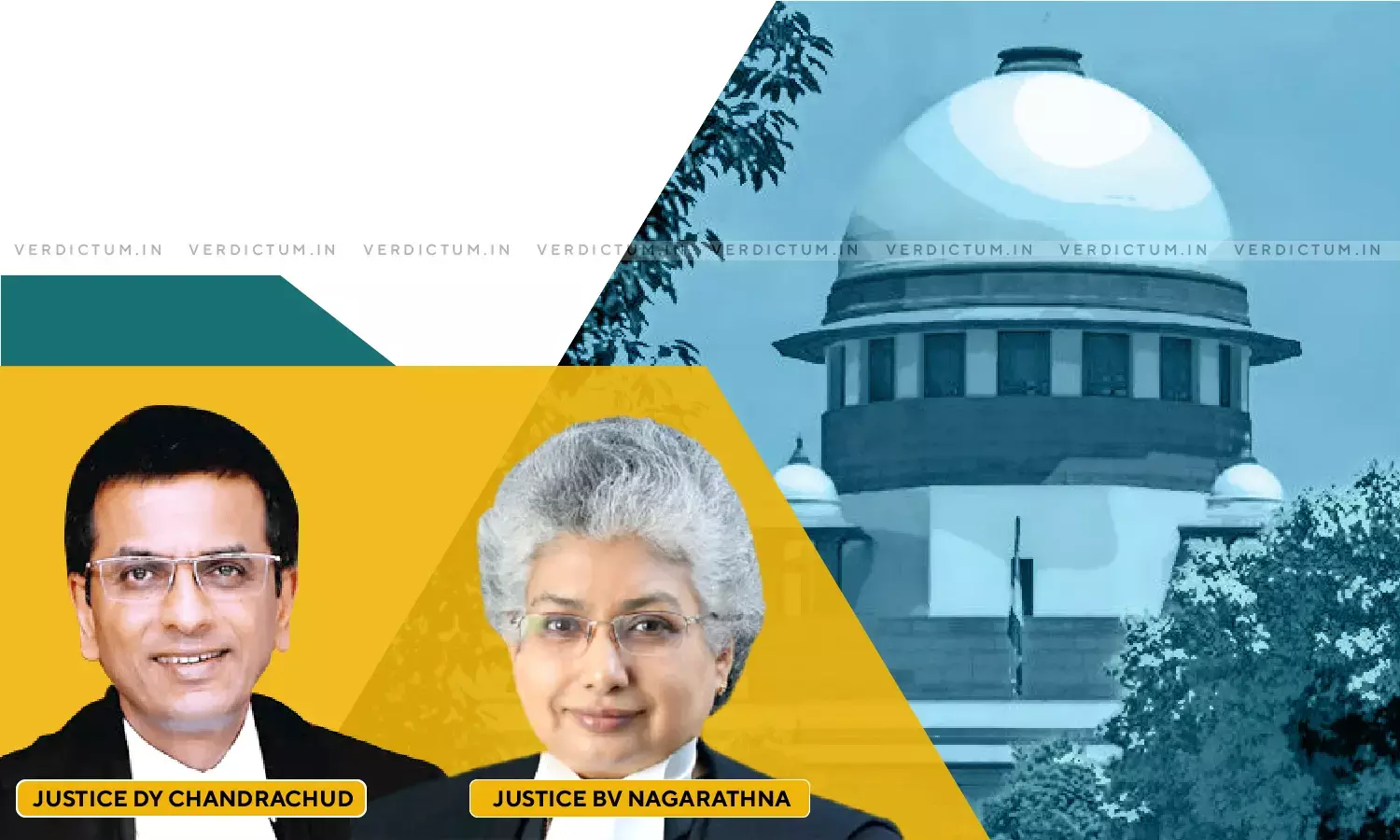An Accused Having A Major Role In The Crime Cannot Claim Parity With Co-Accused In Grant Of Bail: Supreme Court

A two-judge Bench of Justice DY Chandrachud and Justice BV Nagarathna has held that for the grant of bail on the ground of parity with the co-accused, the allegations, and material produced against the accused have to be considered.
"The first respondent cannot claim parity with the co-accused since the allegations in the FIR and the material that has emerged from the investigation indicate that a major role has been attributed to him in the murder of the deceased," the Court held.
An appeal was preferred before the Supreme Court against the judgment of a Single Judge of the Rajasthan High Court at the Bench at Jaipur by which the first Respondent was released on bail.
The Appellant was the father of the deceased, whose complaint resulted in the registration of the FIR against the deceased's wife (Respondent 2) and Respondent 1 who was working with the Anti-Corruption Bureau, and several others.
The Appellant's son was working with the Intelligence Bureau as a Senior Technical Officer. On the day of his death, the deceased was traveling from New Delhi to Ramgajmandi when the Appellant received a phone call and was informed about the death of his son. The postmortem of the deceased revealed that the right lung, liver, spleen, and kidneys were congested. An unnatural death was registered under section 174 CrPC at the instance of the Appellant.
Subsequently, on an application filed by the Appellant, the CJM, Jhalawar ordered an investigation.
During the investigation, it was revealed that the deceased was killed by administering Ketamine, an anesthetic drug. The investigation revealed that the wife of the deceased was in constant touch with Respondent 1 after the death of her husband and other evidence also proved the active involvement of Respondent 1 in the death of the deceased.
Based upon the investigation, a charge sheet was filed for offences under sections 302, 364, 201, and 120B of IPC and Section 3(2)(v), SC/ST Act against all the accused.
Respondent 1 had filed an application for bail which was dismissed by the Single Judge of the High Court while the wife of the deceased was granted bail by the High Court considering that she had a child of 11 months and due to her incarceration, her child was also confined with her in the jail.
However, the High Court by the impugned order dated granted bail to Respondent 1 for the reasons– (i) The Respondent 1 was in custody for two and a half years; (ii) Out of seventy-six witnesses only twenty-five have been examined; (iii) There was a delay in lodging the FIR; (iv) While the initial FSL report did not contain any reference to the use of the Ketamine, it was after four months that police had developed a case that Ketamine was administered to the deceased; and (v) The co-accused had been enlarged on bail.
The Appellant contended before the Court that the High Court has erred in releasing Respondent 1 on bail. It was argued that there was sufficient material on record to show that the first Respondent was involved in the death of the deceased and the High Court has failed to notice the seriousness and gravity of the crime that he has committed. Also, the first Respondent cannot claim parity with the co-accused since she had a child of eleven months and the bail was granted to her in special circumstances.
While the Respondent inter alia contended that the First Respondent should be enlarged on bail on the ground of parity with the co-accused, the wife of the deceased.
The Apex Court, after considering the contentions, held that the High Court ought to have had due regard to the seriousness and gravity of the crime. Further, the Court held that the co-accused wife of the deceased was granted bail primarily and substantially on the ground that she had a child of 11 months with her in jail. Such a grant of bail cannot form a ground to claim parity with the co-accused.
"For the above reasons, we have come to the conclusion that the High Court was in error in allowing the application for bail. The consideration that twenty-five witnesses out of seventy-six witnesses had been examined must equally be weighed with the seriousness of the crime, the role attributed to the first respondent and the likelihood of the evidence being tampered with if the first respondent were to remain on bail during the course of the trial. In this backdrop, it was wholly inappropriate for the High Court to proceed on the surmise that the police had "developed a case" that Ketamine was administered, after four months of the incident," the Bench noted.
Accordingly, the Court set aside the impugned order of the High Court enlarging the first Respondent on bail with a direction to the Respondent 1 Accused to surrender and be taken into custody and allowed the appeal.

